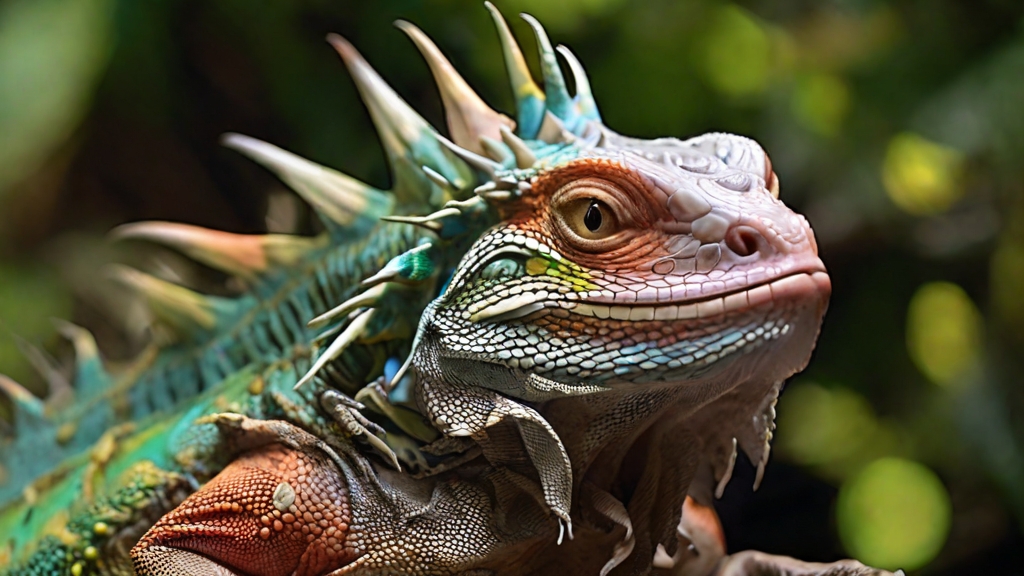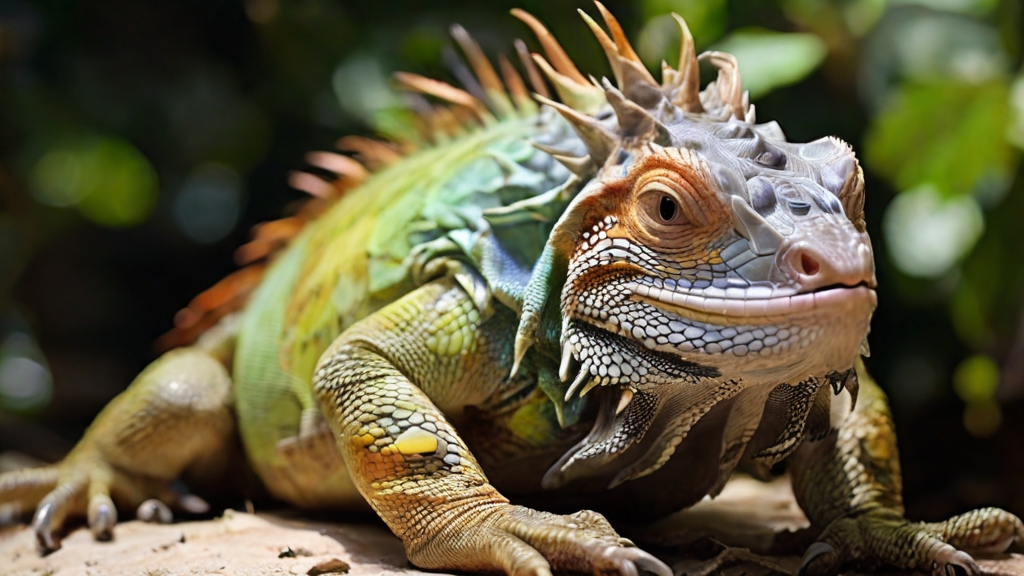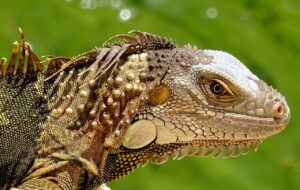Iguanas are fascinating creatures, known for their distinctive appearance and unique behaviors. One behavior that many iguana owners have observed is head-bobbing, a rhythmic up and down movement of the head. But why do iguanas bob their heads?
The Science Behind Iguana Head-Bobbing
There are several theories as to why iguanas bob their heads. One theory is that head-bobbing is a way for iguanas to communicate with each other.
In the wild, iguanas live in social groups, and head-bobbing may be used as a way to signal to other iguanas that they are friendly and non-threatening.
Head-bobbing may also be used as a way to establish dominance within the group, with larger iguanas exhibiting more frequent head-bobbing behavior.
Another theory is that head-bobbing is a way for iguanas to gauge their surroundings.
Iguanas have excellent vision and can detect movement from a distance, so head-bobbing may be a way for them to scan their environment for potential threats or opportunities.
Despite the various theories surrounding iguana head-bobbing, there is still much that we don’t know about this behavior.
Scientists and reptile experts continue to study iguana head-bobbing in order to better understand its purpose and the factors that influence it.
One aspect of iguana head-bobbing that remains a mystery is the role of hormones. Some studies have suggested that head-bobbing behavior is linked to the iguana’s reproductive system, with males exhibiting more head-bobbing during the breeding season.
Other research has suggested that head-bobbing may be influenced by levels of the hormone testosterone, with males having higher levels of testosterone and therefore exhibiting more head-bobbing behavior.
Despite these findings, it’s important to note that much more research is needed to fully understand the relationship between hormones and iguana head-bobbing.
It’s also worth noting that not all iguanas exhibit head-bobbing behavior, and the intensity and frequency of head-bobbing can vary widely among individuals.
Common Misconceptions About Iguana Head-Bobbing
Despite the various theories surrounding iguana head-bobbing, there are also several misconceptions about this behavior.
Some people believe that iguanas head-bob as a way to show aggression, but this is not the case. While iguanas may bob their heads as a way to assert dominance, it is not a sign of aggression.
Another common misconception is that iguanas only head-bob when they are happy. While it’s true that iguanas may bob their heads when they are feeling relaxed and content, this behavior can also be influenced by other factors, such as environmental conditions and the presence of potential mates.
Factors That Can Affect Iguana Head-Bobbing
There are several factors that can affect the frequency and intensity of iguana head-bobbing behavior. Some of these include:
- Age: Juvenile iguanas tend to head-bob more frequently than adult iguanas.
- Diet: Iguanas that are fed a nutritionally balanced diet may be more likely to head-bob than those that are malnourished.
- Socialization: Iguanas that are kept in social groups may exhibit more head-bobbing behavior than those that are kept alone.
- Environmental conditions: Iguanas may head-bob more frequently when they are kept in an enclosure that simulates their natural habitat.
How to Care for Your Iguana to Promote Head-Bobbing
If you want to encourage head-bobbing in your iguana, there are a few things you can do to create a healthy and stimulating environment. Here are some tips:
- Provide plenty of space: Iguanas need plenty of room to move and explore, so make sure your enclosure is large enough to accommodate your iguana’s size and activity level.
- Offer a varied diet: Iguanas need a diet that is rich in nutrients, including protein, fiber, and vitamins. Offer a variety of fresh vegetables, fruits, and leafy greens, and consider supplementing with a high-quality iguana pellet.
- Provide environmental enrichment: Iguanas are intelligent and curious creatures, so it’s important to offer them plenty of opportunities to engage with their surroundings. This can include providing climbing structures, hiding spots, and objects to explore and manipulate.
- Consider socialization: If you have the space and resources, consider keeping your iguana in a social group. This can help promote head-bobbing behavior and provide mental and physical stimulation for your iguana.
Conclusion:
Iguanas are mysterious and fascinating creatures, and their head-bobbing behavior is just one of the many things that make them so unique.
While we may not know all the reasons why iguanas bob their heads, we do know that this behavior is an important part of their communication and interaction with their environment.
By providing your iguana with a healthy and stimulating environment, you can encourage this behavior and help your iguana thrive.
Do you have any other questions about why iguanas bob their heads, or do you have any experiences with this behavior that you’d like to share? Let us know in the comments section below!




